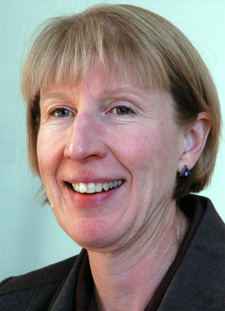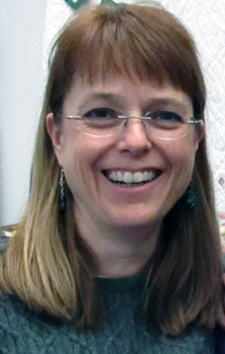
By NED ROZELL March 16, 2011
Women scientists face unique challenges and sometimes find distinctive opportunities. To mark Women’s History Month, I sent a questionnaire to a few Alaska women scientists who have excelled at their craft for a few decades.
Following are the edited responses of two of them - Nettie LaBelle-Hamer, director of the Alaska Satellite Facility and Joan Braddock, director of the University of Alaska Press and Dean Emerita of the University of Alaska Fairbanks’ College of Natural Science and Mathematics. LaBelle-Hamer earned her doctorate degree in space physics in 1994, switched to Earth science, and became director of the Alaska Satellite Facility in 2002. Braddock worked on bioremediation in Prince William Sound after the Exxon Valdez oil spill of 1989 and later researched biodegradation of contaminants in cold soils. Were there more hurdles for you to clear in science because you were a woman? JB: I have certainly had the classic experiences that women in science report, such as being the only women in a group of professionals and thus asked to photocopy materials. Or, being paid less than men. There were several notable experiences where I would make a suggestion in a group that was ignored until a man made the same suggestion later in the conversation. Since it has also happened on occasions when I became more senior, it is hard to imagine that gender did not play some role. On the other token, I strongly feel that I got some great opportunities by being one of few women in science at UAF. I often was asked to serve on interesting committees or searches for high-level administrative positions. NL-H: More hurdles in the early years than later, I think. In graduate school, when I was having trouble with a particular class assignment, I was told that maybe I should consider going home and being a mom for a while. Oh, and one of my favorites: I was told that I should consider being a teacher since, you know, I am a woman and all. I still don't know what that one means, but somehow I think it was insulting. Just for the record, of the 11 people who entered the space physics and atmospheric graduate program the same year as me, I was the only one married, and the only one with a child - and the first one to get a degree. Has public perception changed about women scientists? NL-H: Things are better. The younger generation seems to have less hang-ups about women in science than previous ones. When I became director I was asked if there were any ramifications due to my being a woman. I said no and I believed it. I think there are some of the older (male) scientists here that think of women as lesser, but it is really fading. JB: It has, to some degree. There are more and more women in graduate school and, although there are still more women falling out of the system before entering careers in science, it is less frequent than it used to be. Nevertheless, all is not equal. For example, even very recent salary analyses show disparities by gender. Have there been hurdles you have faced that a man would not have faced? JB: In my career those experiences were offset somewhat by opportunities linked to being a woman in science. I did face salary inequities in my early career and was the most poorly paid person of the 29 faculty members in my department for a time. Eventually, that was rectified, but I had to ask to make it happen. NL-H: Doing lab work while pregnant. Or taking the (Graduate Record Examination) with Braxton-Hicks contractions. Or being called out of a lecture because my child had a fever and needed to go home. We raised our family before the Family Medical Leave Act, so my husband did not get to leave work for small things like childbirth or strep throat. He got off less than one day for the births of our kids. Times have definitely changed! Now men take off weeks for their child's birth. What would you tell a girl who is contemplating a career in science? JB: There are exciting opportunities in science. I greatly enjoyed my active time as a scientist. I have, though, cautioned women that they should not assume that there is absolutely no gender bias remaining. There are still issues including salary issues at some institutions. I don't think you want to proceed thinking you are going to be taken advantage of, but women should also keep their eyes open and be willing to make sure they are being treated equitably. NL-H: Go for it! If you love science, you should be doing it. I'd say the same thing to a boy.
Next week: More women scientists answer the same questions.
This column is provided as a public service by the Geophysical Institute,
Publish A Letter in SitNews Read Letters/Opinions
|
|||

